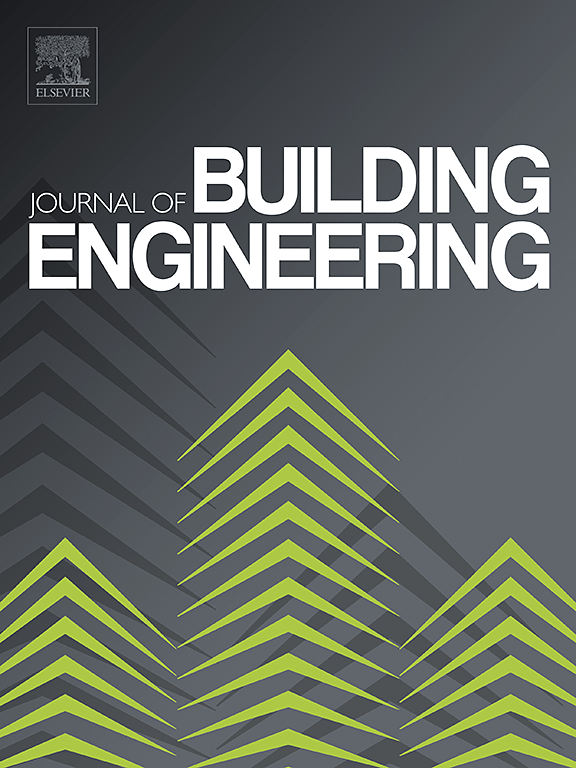知识管理在建筑工程项目风险管理中的应用
IF 7.4
2区 工程技术
Q1 CONSTRUCTION & BUILDING TECHNOLOGY
引用次数: 0
摘要
全球对城市化、智能城市和高层建筑的需求增加了建筑、工程和建筑(AEC)行业的项目数量。这些建筑是在紧张的时间表、紧张的合同、巨额预算和高度绩效驱动的施工经理下设计的。因此,本文对知识管理在建设项目风险管理中的应用进行了系统的文献综述。使用SLR,使用了两个学术数据库,即Dimensions和Scopus,用于2000年至2025年的出版物。通过对项目风险管理(PRM)、施工过程和与施工相关的知识管理领域进行分类,研究了从研究中获得的知识。本研究使用的关键词搜索是在谷歌Scholar数据库中进行的。对该SLR的搜索考虑了三个主要领域,即项目管理(PM),知识管理(KM)和风险管理(RM)。然而,在定量风险管理(quantitative risk management, QRA)等其他方面进行了相关的研究。研究结果包括关于出版趋势的知识地图的发展。关于出版趋势的调查结果反映了出版物的稳定增长,由于全球事件(如2020/2021年的COVID-19大流行),出版物出现了高峰和低谷。就学科领域而言,工程学是占主导地位的学科领域(39%),其次是商业和计算机科学,然后是其他学科。此外,主要国家包括美国、中国、英国、澳大利亚、马来西亚等。本研究的意义反映了以知识为基础的学习对建筑管理的影响。该研究发现了各种创新技术,通过知识管理适用于建筑。这款单反相机展示了建筑行业的新兴趋势、应用和研究合作。本文章由计算机程序翻译,如有差异,请以英文原文为准。
A systematic literature review on knowledge management for project risk management in construction
The need for urbanisation, smart cities and high-rise buildings globally has increased the volume of projects carried out in the Architecture, Engineering and Construction (AEC) industry. These buildings are designed under tight schedules, tight contracts, huge budgets, and highly performance-driven construction managers. Thus, this article presents a systematic literature review (SLR) on knowledge management for project risk management in construction. Using the SLR, two academic databases were utilised, namely Dimensions and Scopus for publications from 2000 to 2025. The knowledge acquired from the research was examined by classifying the areas on Project Risk Management (PRM), construction processes and knowledge management associated with construction. The keyword search utilised for this study was conducted in Google Scholar database. The search on this SLR considered three main areas namely project management (PM), knowledge management (KM) and risk management (RM). However, related search was conducted on other aspects like quantitative risk management (QRA). The findings include the development of knowledge maps on publication trends. Findings on the publication trends reflect steady growth in publications, with peaks and dips due to global events (like, COVID-19 pandemic in 2020/2021). Regarding the subject areas, Engineering is the dominant subject area (39 %), followed by Business and Computer Science, then others. Also, the leading countries include USA, China, UK, Australia, Malaysia, then others. The implications of the study reflect knowledge-based learning on construction management. The study found various innovative technologies that are adapted in construction through knowledge management. This SLR shows emerging trends, applications and research collaborations in the construction industry.
求助全文
通过发布文献求助,成功后即可免费获取论文全文。
去求助
来源期刊

Journal of building engineering
Engineering-Civil and Structural Engineering
CiteScore
10.00
自引率
12.50%
发文量
1901
审稿时长
35 days
期刊介绍:
The Journal of Building Engineering is an interdisciplinary journal that covers all aspects of science and technology concerned with the whole life cycle of the built environment; from the design phase through to construction, operation, performance, maintenance and its deterioration.
 求助内容:
求助内容: 应助结果提醒方式:
应助结果提醒方式:


